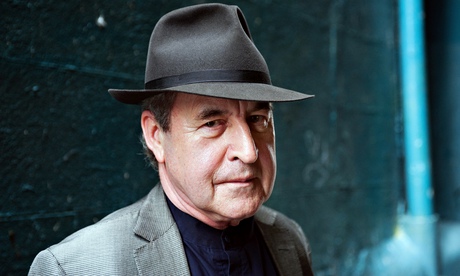
John Banville is an unsafe pair of hands. That is partly why one keeps reading him. There is nothing secure about the arc of his narratives or a docile sentence within them. And in this latest novel, his 16th, he holds you with his glittering eye – or pen – in a way that would not disgrace Coleridge’s Ancient Mariner.
His narrator is Oliver Otway Orme, a has-been artist with hair wonderfully likened to cauliflower (“It clenches itself into curls that are as tight and dense as cauliflower florets”). This painter’s purpose, it would seem, is to confide about the affair he has been having with Polly, a woman of no note, a sturdy siren and wife of his best friend, Marcus, a watchmaker. There were moments when I asked myself why I wanted to read on when nothing about this painter and his seedy solipsisms need detain one – but the question was easily dismissed. For with Banville, what enraptures – always – is the writing itself.
He holds words up to the light as carefully as any watchmaker or poet, and although a handful are outlandish collector’s pieces (haruspicating, borborygmic, rubious, autochthons), he is more than usually alive to what each word is doing, its precise reverberation. There is a point when Marcus uses the word anguish (as well he might) and our narrator comments: “That was the word he used, ‘anguish’. I thought it queer, even in such dire circumstances, more a flourish than a word.” His narrator wears his self-consciousness on his sleeve and Banville does too. And he is not above flourishes himself: he is the sort of writer who can use “withal” without strain: a “pale-haired creature but imperious withal”.
But self-consciousness in this novel is about more than language. Self-consciousness is Oliver’s curse. He is arid, amoral, as if his life were an experiment performed upon himself. Even when suffering, there is the clandestine thrill of monitoring himself, though compromised by self-contempt. He reveals himself as a thief, of ornaments and women. He is fascinated by mirror images – the glass innocently engaged in another sort of theft. And painting is likened to “an endless effort at possession”. But what Banville describes most unnervingly is a man not living because he is watching himself living – an occupational hazard in a painter (and writer). He robs himself of primary feeling because he is more interested in observation. A jaded arm’s length is his customary distance on emotion, other people’s and his own. He is light-fingered about life. He believes “the expressing is all”. And because he is his own specimen, he is irritatingly arch: “Ah. Love. Yes. The secret ingredient I always forget and leave out.”
Oliver even wants us to believe that everything he sees might be a figment of his imagination. When he and Polly take flight to her childhood home, he plays with the idea that he is imagining the place. His next exultantly reductive brainwave is to speculate as to whether the idea of “woman” is no more than a passing fancy. He writes pitilessly about the unmasking of a grownup returning home. Polly, hair pulled back and frumpily dressed, is desexualised and he entertains the illicit, discombobulating thought that she is his daughter. He also revels in the way her hair used to smell like “fusty biscuits”.
Banville’s novels often involve a moral opacity, offset by the clarity with which he sees through people. He is as good on body language as on language itself. He shrewdly describes the painter’s spurned wife, Gloria, who uses vagueness as her revenge, behaving with a “ripple of perplexity, as if she can’t quite recall who I am”. His portraits of married (and unmarried) couples rival Strindberg’s and his lyrical descriptions of nature and weather come as light relief from the torment experienced by those under his skies: “The day seemed huge and luridly luminous, as if a lid somewhere had been abruptly lifted. How extraordinary after all, the perfectly ordinary can sometimes seem… ” Or “… soft rain was falling on glass above our heads. I’m fond of that kind of rain, and pity it, in my sentimental way: it seems to be trying so hard to say something and always just failing.”
It is almost 30 years since Banville published The Book of Evidence (the novel that made him a literary name) and this latest novel reminds us that, in a sense, all his books could share the title of the first. In its last pages, the narrative undergoes a 180-degree turn, but Banville does not share the rain’s difficulty in saying what needs saying. He shows himself, once again, as one of contemporary literature’s finest and most expert witnesses.
The Blue Guitar is published by Viking (£14.99). To order it for £11.99 click here

